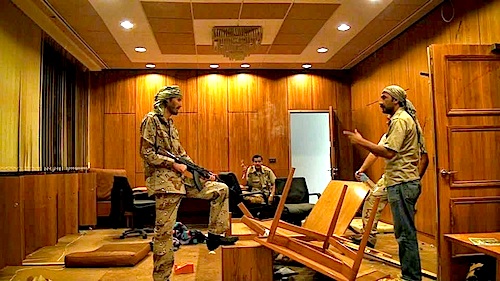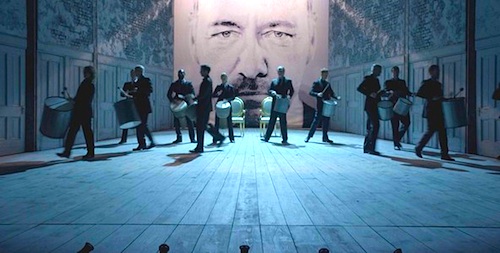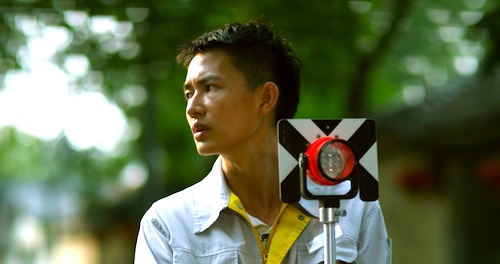By Joe Bendel. Matthew VanDyke’s only formal military training came while he was an embedded reporter with the American military in Iraq. There were those in the Libyan rebel army who had far less, but they were not a sheltered twenty-seven year-old living with a conspicuous case of OCD. Relying on travel and combat footage shot by VanDyke himself, Marshall Curry documents his journey from a homebody who had never even done his own laundry to a POW of Gaddafi’s notorious Abu Salim prison in Point and Shoot, which won the Best Documentary Feature Award at the 2014 Tribeca Film Festival.
Partly at the prodding of his girlfriend Lauren Fischer, the underachieving VanDyke set out to remake himself into a sort of gonzo travel journalist motorcycling through the Middle East. It worked to some extent. By virtue of proximity, he was able to cover Iraq for a local Maryland paper. Not surprisingly, he got along famously with the troops he followed, most of whom he still considers friends. The instruction they gave him on the shooting range would also serve him well.
Through his travels, VanDyke also made fast friends with hippie Libyan tourist Nuri Funas, whose home he illegally visited before the war erupted. When the Arab Spring reached Libya, VanDyke also returned, determined to fight for and alongside his new friends. Unfortunately, he was captured during an ambush shortly thereafter, but that would hardly be the last word on his warfighting experiences.
Hipper readers might recognize VanDyke as the director of the short but intense documentary, Not Anymore, which dramatically captures the boots-on-the-ground reality in Syria (now available on-line). It is safe to say recent years have been eventful for the filmmaker, considering Curry only takes viewers through VanDyke’s Libyan period.

He tells the story well, framing VanDyke’s footage with a confessional interview—he is almost like the twenty-first century equivalent of a Joseph Conrad narrator, except he has the video to verify his narrative. For obvious reasons, VanDyke has no footage from his time held in solitary confinement, but Curry compensates with Joe Posner’s stark 3D animation sequences, modeled from the very walls of VanDyke’s former cell.
VanDyke’s chronicle is pretty darn dramatic (and still developing). While just about everyone with a handheld device might be recording the world around them, you have to be in a warzone to shoot a battle selfie. Indeed, the filmmaker-freedom fighter captures some powerful and illuminating images. Altogether, it celebrates freedom and human dignity for all, as well as the very American practice of self-reinvention. Highly recommended, Point and Shoot is sure to have a long festival life after winning the World Documentary Competition at this year’s Tribeca Film Festival. It is already scheduled to screen this Wednesday (4/30), Thursday (5/1), and Saturday (5/3) during Hot Docs in Toronto.
LFM GRADE: A-
Posted on April 30th, 2014 at 11:33pm.

